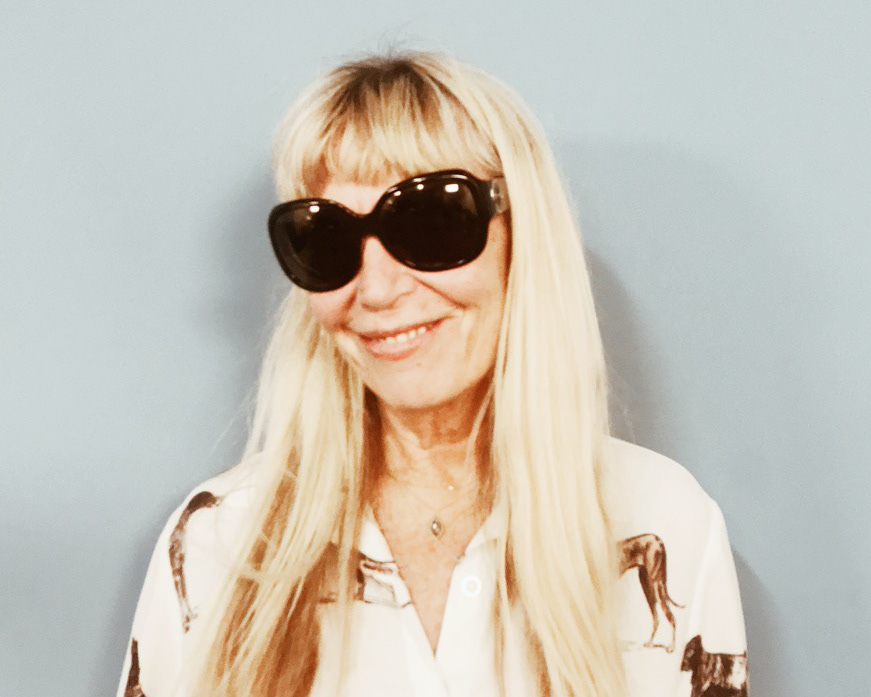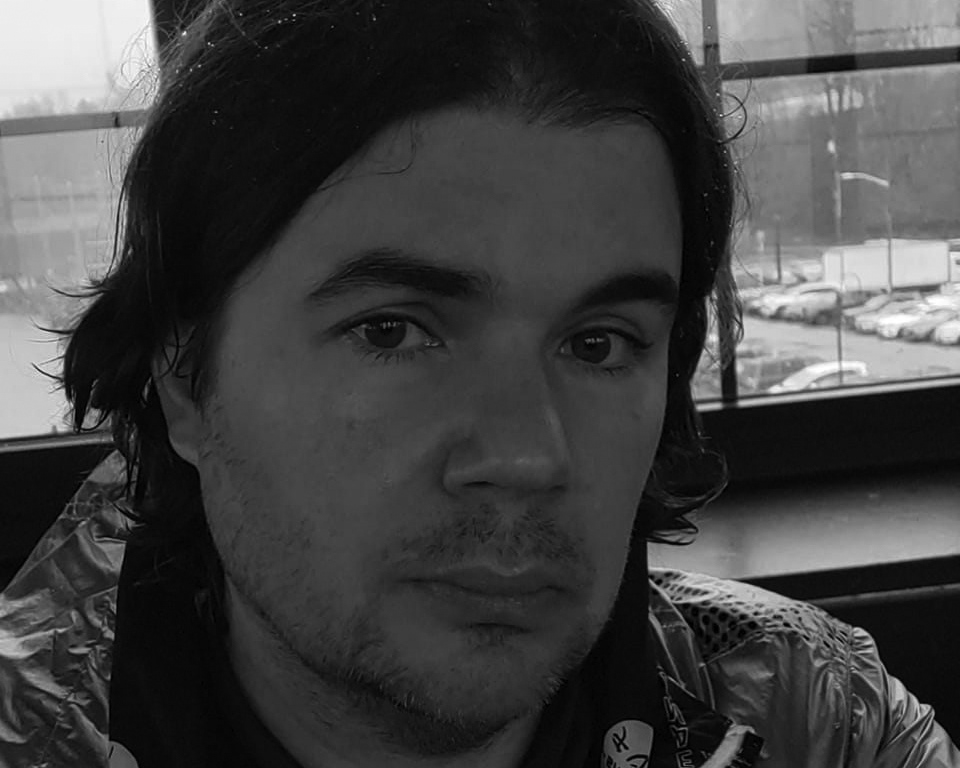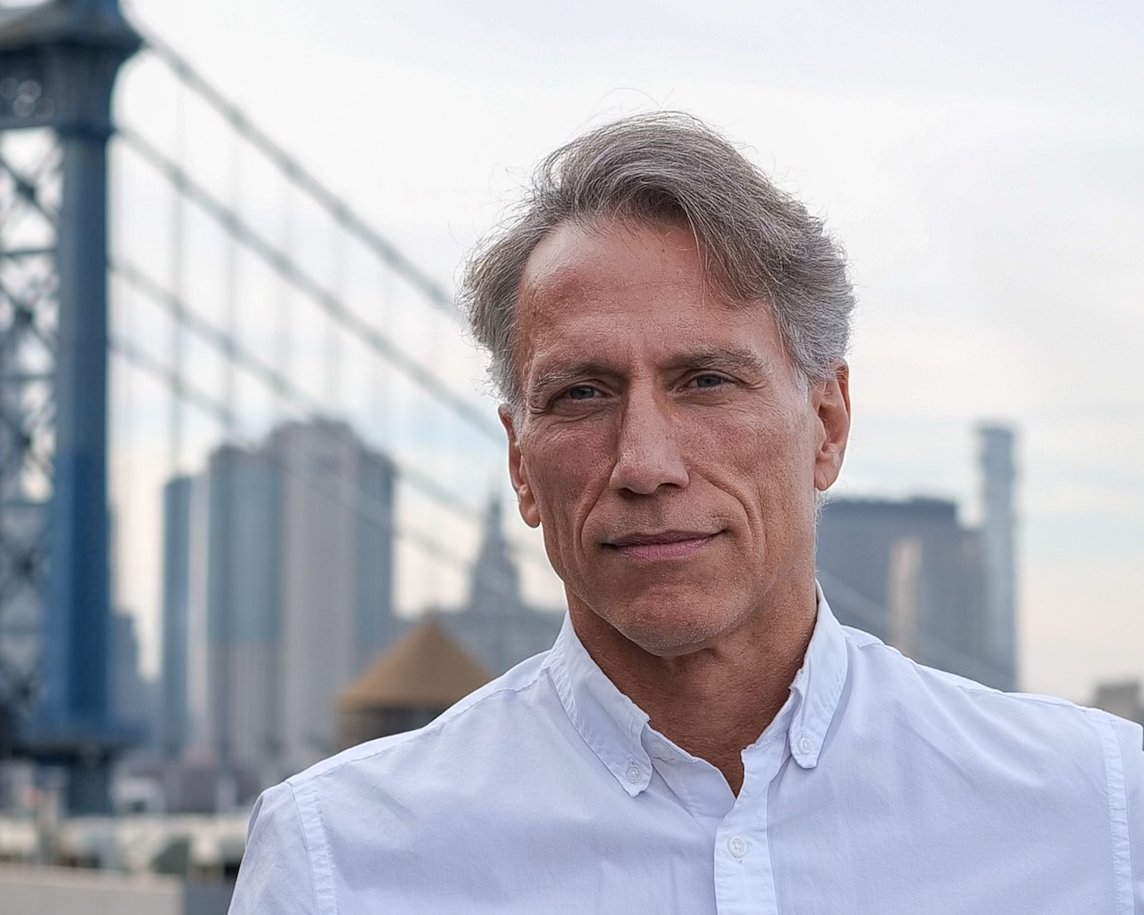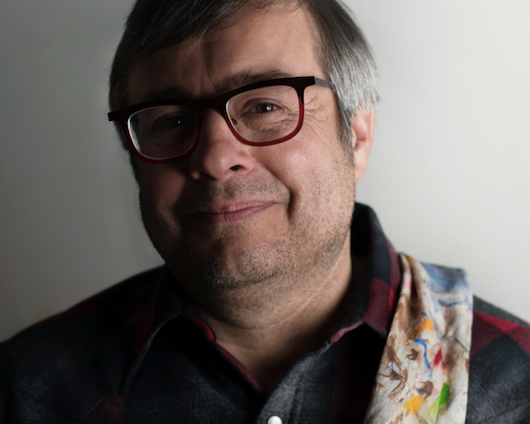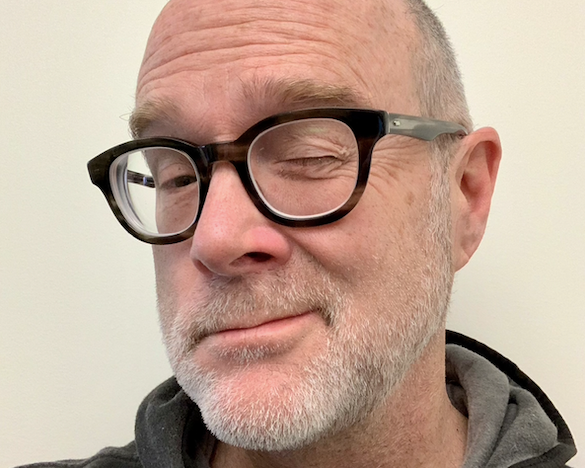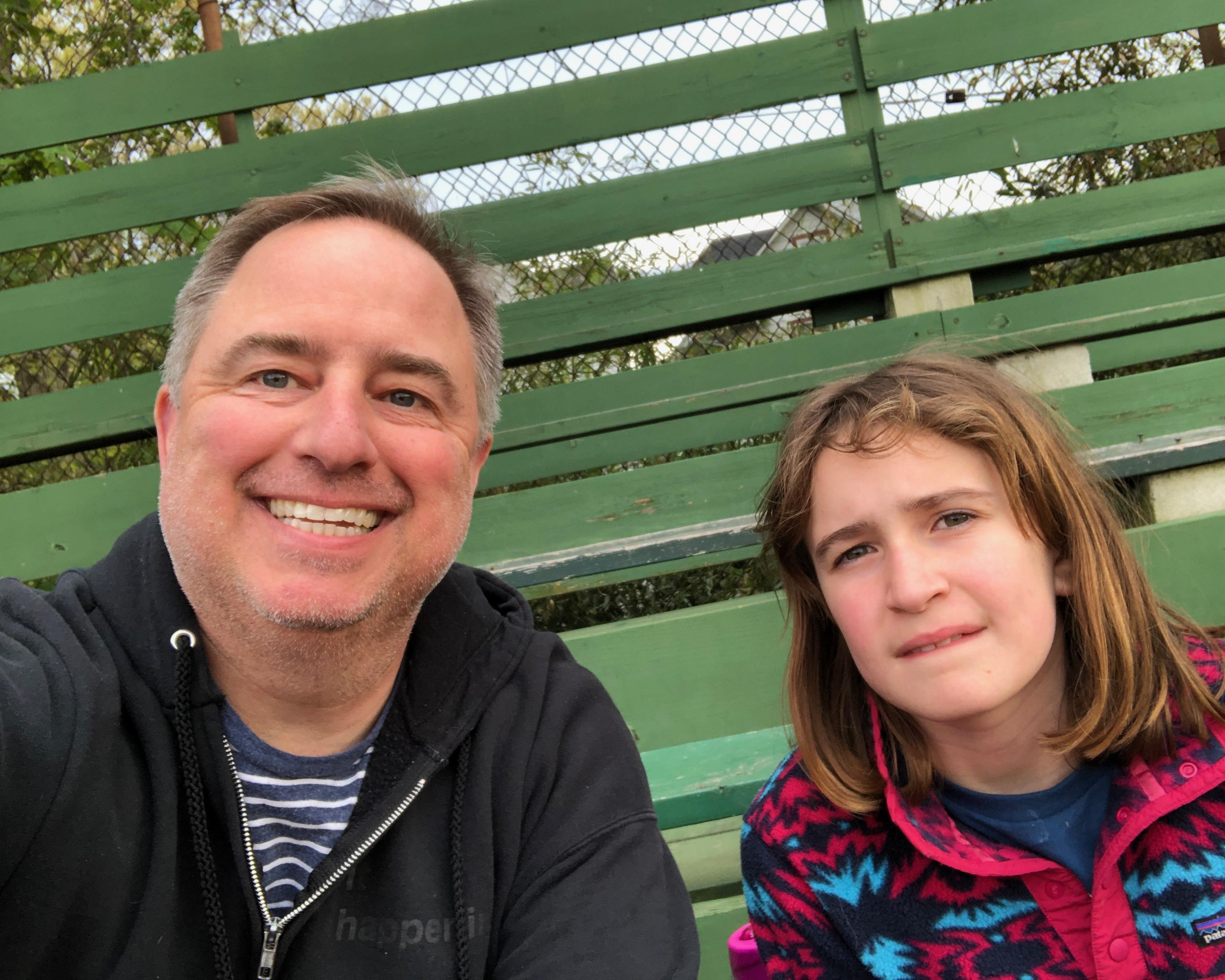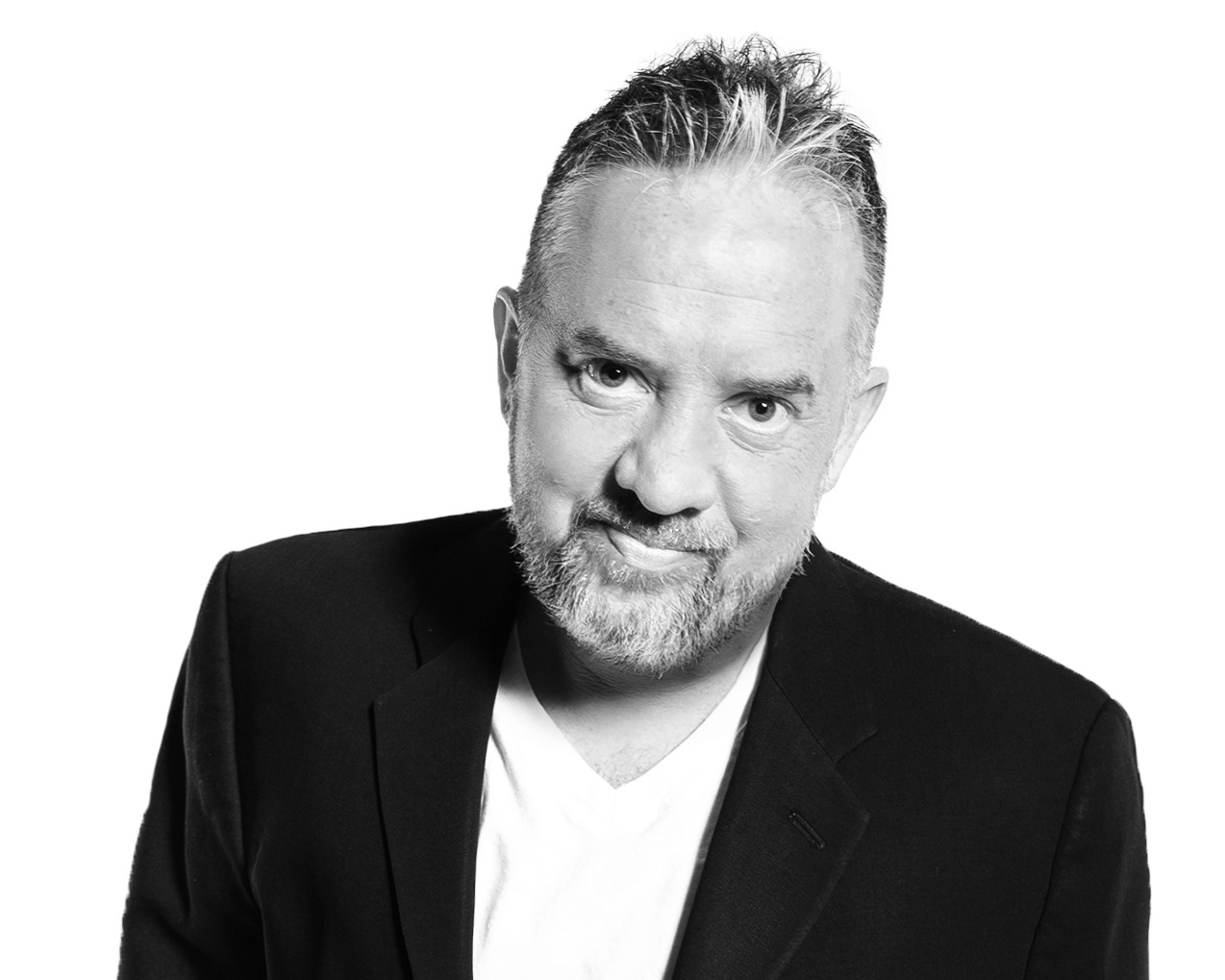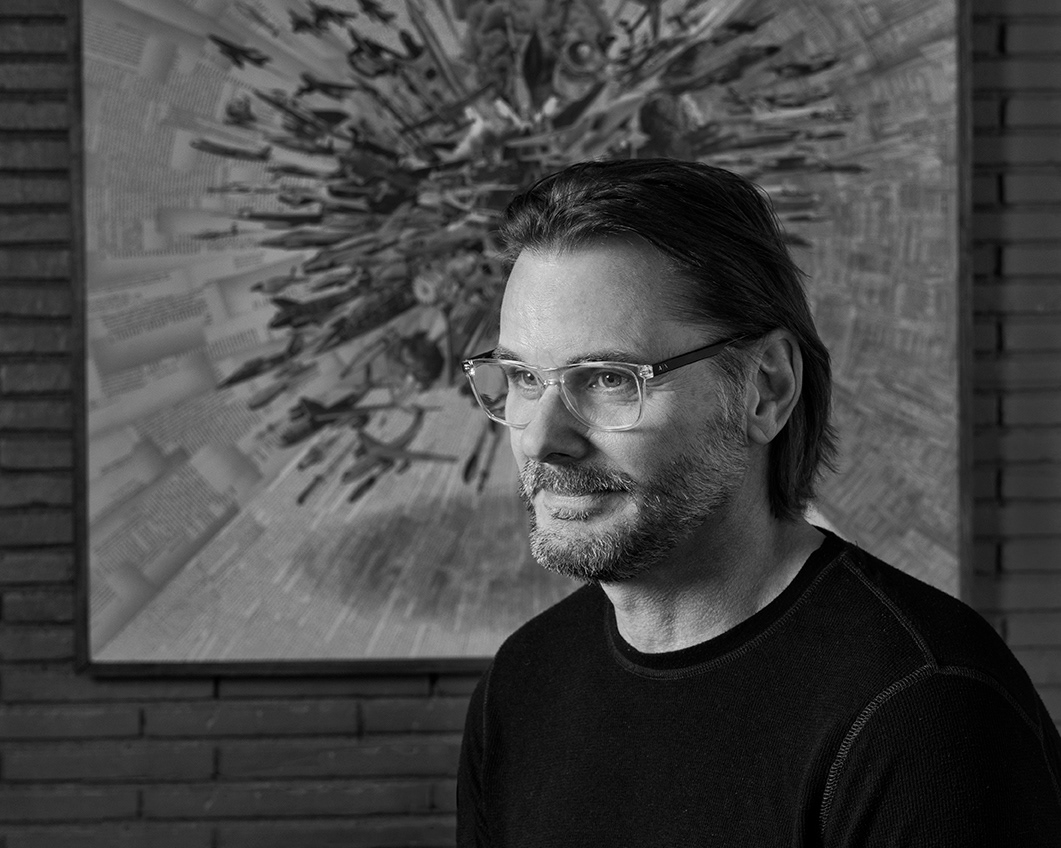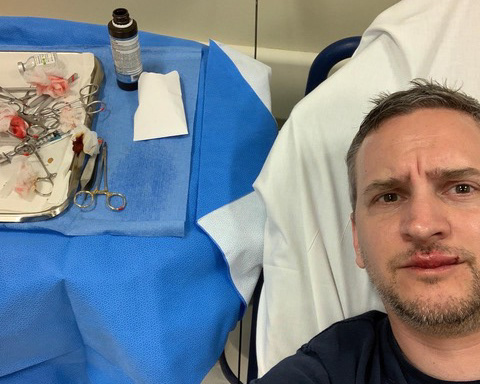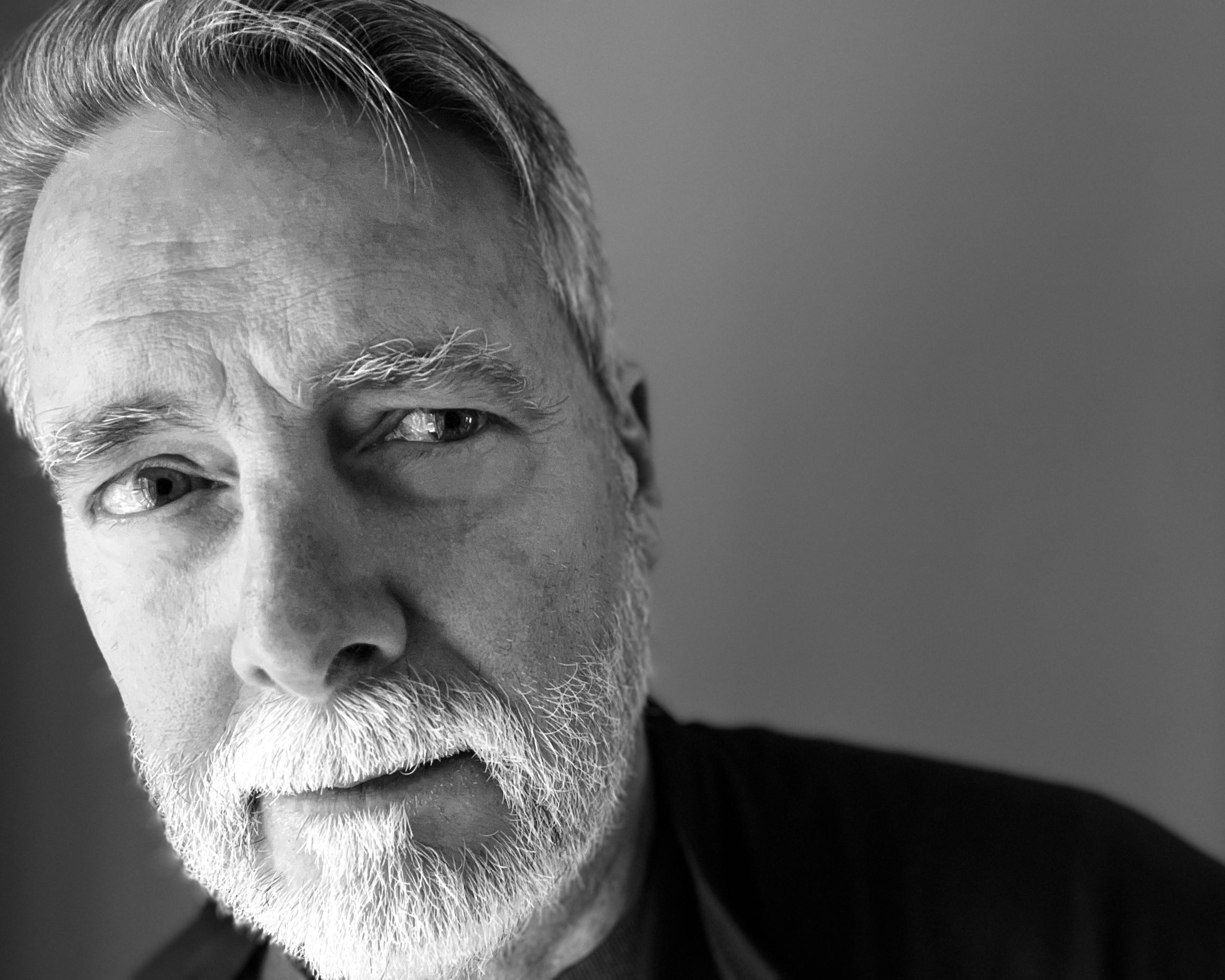Not gonna lie, reading Ro’s lengthy and highly accomplished bio induced more than a touch of anxiety. But it was nothing that a glass of wine and a few breaths into a paper bag couldn’t cure.
Born in Hyderabad, India and raised in Rancho Cucamonga, California, Rohitash Rao is the ultimate septuple threat: an award-winning art director, director, animator, writer, illustrator, fine artist and teacher. He has worked as an art director at dozens of agencies including Chiat Day/LA, Cliff Freeman & Partners/NY, and Fallon/Minneapolis, and was a creative director at the SciFi Channel in New York. He has co-created and illustrated 7 children’s books published by Harper Collins, and created an animated pilot for Fox Television that was produced by Lorne Michaels. But wait, there’s more…Ro has also worked as a director, both in live action and animation, and has been represented by Moxie Pictures, Curious Pictures and Shadow Machine. And since 2016 he has had 12 solo shows as a fine artist in LA, New York, Austin, San Francisco and Nashville. Also, (yes, we are just about done) he shares his vast wisdom with a group of lucky students in the advertising program at UT Austin.
Our apologies if you’re now a bit anxious, too. The good news is you’ll soon be incredibly inspired.
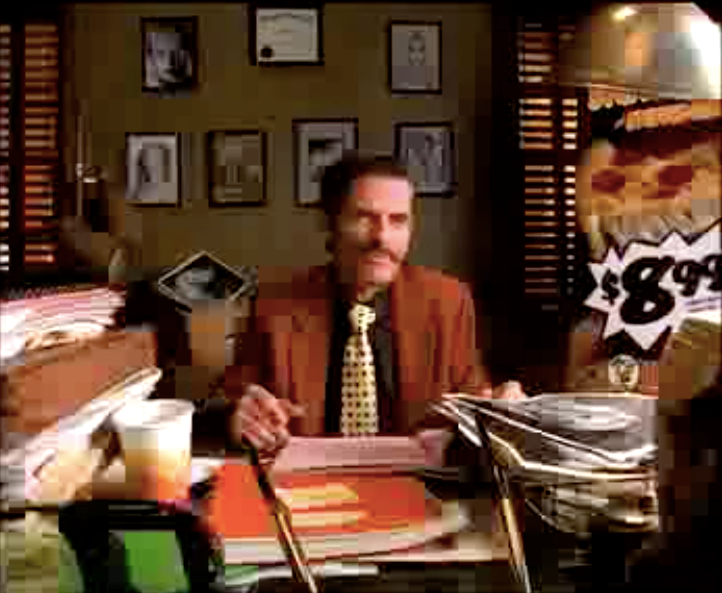
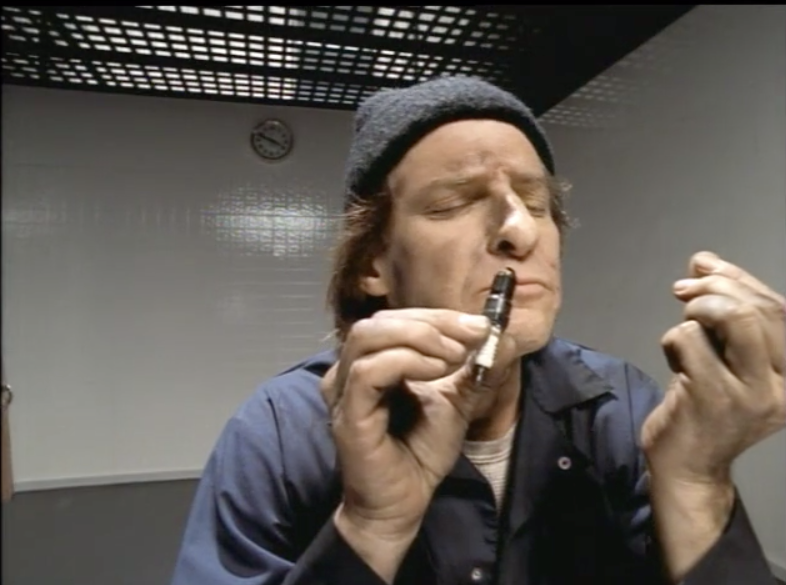
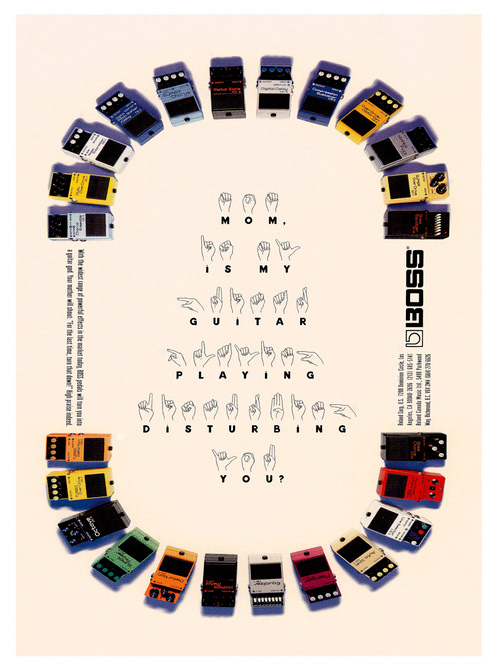
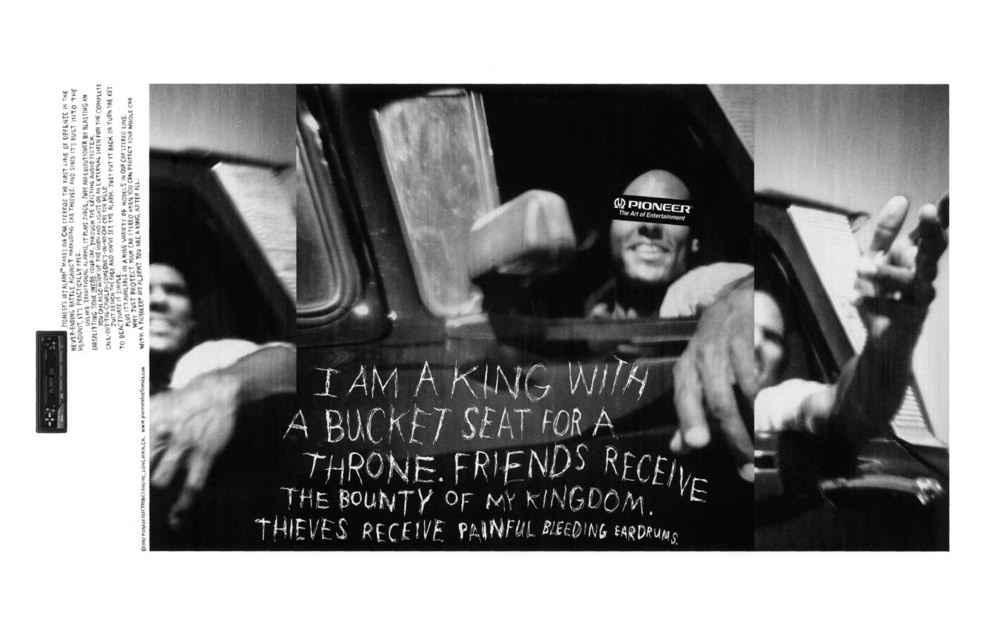
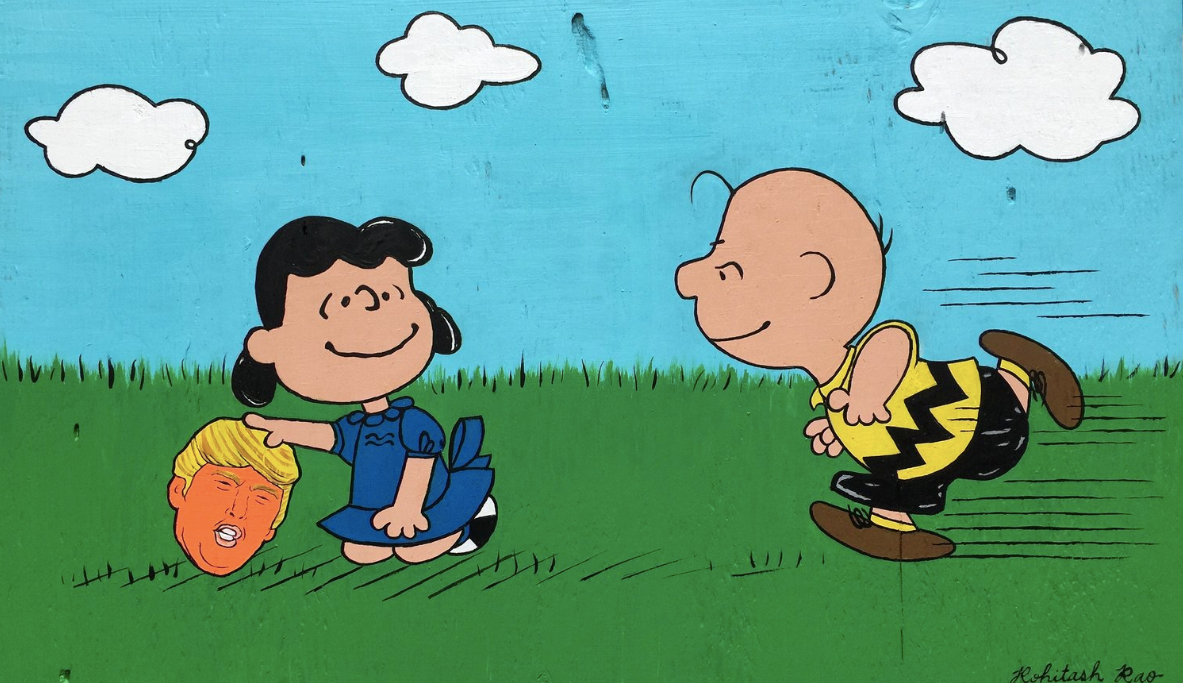
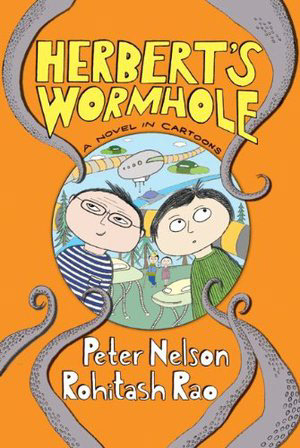
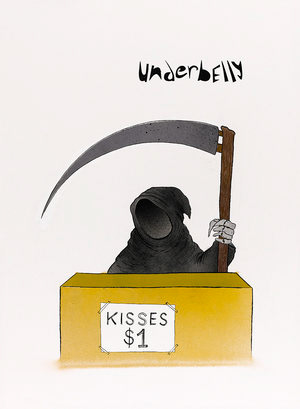
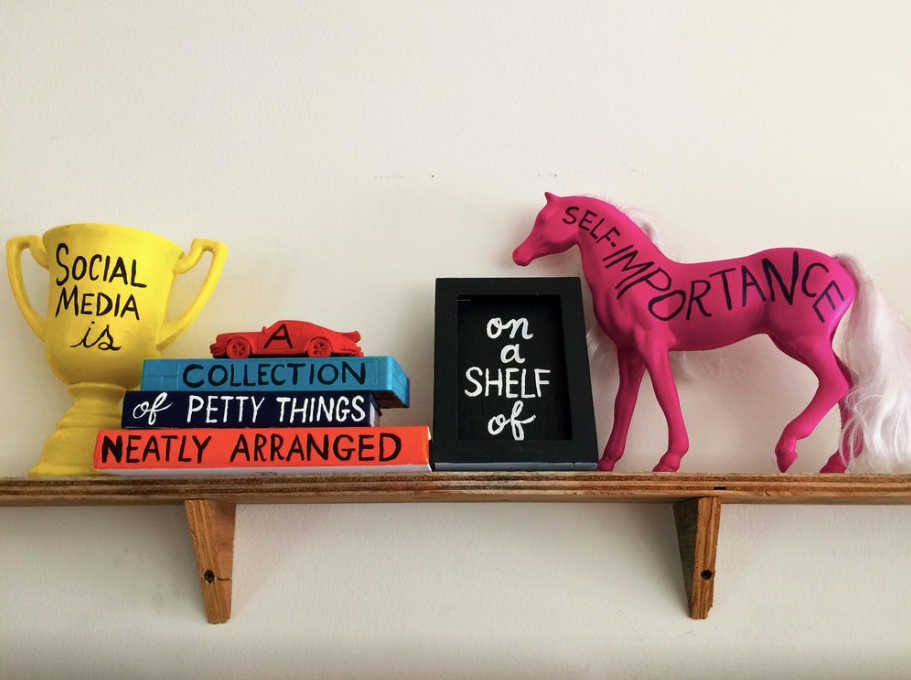
Is ageism in the industry something you thought about in your 30s? Your 40s?
I never thought about ageism. I mean, I knew at some point you will get old and you will probably cease to be relevant, but my path was always guided by something I read by William Burroughs, “Build a good name. Keep your name clean. Don't make compromises, don't worry about making a bunch of money or being successful — be concerned with doing good work and make the right choices and protect your work. And if you build a good name, eventually, that name will be its own currency."
Is ageism something that’s affected you? What are some of the challenges you faced as a person who was getting older in the business? Do tell.
I never dealt with ageism. But I kind of started to make my way out of the ad game when I was in my mid-20s. But on the flip side, I’m now a teacher at UT Austin talking to the next generation about how to stay creative no matter what the rollercoaster ride of the business throws at you.
"Within 3 years I decided I wanted more - something more creative. I wanted to tell my own stories and not wait for a dream client to someday pay for it."
Tell us about your own creative journey. What are your thoughts on where you are now, compared to your mindset when you were in the beginning of your career?
I graduated from the Art Center College of Design and starting working as an art director. I had great partners, worked at some terrific agencies, did some good work and won some awards. Within 3 years I decided I wanted more - something more creative. I wanted to tell my own stories and not wait for a dream client to someday pay for it. So I went to NYU and took a summer film workshop. When I was done, I spent 2 years making a short film. That short led me to shooting a spec reel and within a year I was a commercial director. A few years later I became an animator. I joined an animation studio in New York and started doing music videos, short films and commercials. Then I teamed up with a friend and we started creating children’s books. A few years later we sold an animated TV idea to Fox and we made a pilot. And then I started painting. After a number of solo shows, I starting a touring art installation called Rohit Records which was “a record store for bands that don’t exist.” Basically, I created a fake record store with over 200 album covers, concert posters and t-shirts for made-up bands. I also had “fake” bands play live at the shows – including me (I play the guitar, accordion and sing.) I’ve even shot a few music videos for some of the songs. I’ve had 12 Rohit Records shows thus far in Los Angeles, New York, Austin, San Francisco and Nashville. And now I am a teacher at UT. I tell my students that the reason I went into advertising is because advertising teaches you how to do two very important things: how to concept and how to pitch. And if you can do those two things, you can do anything.
"I tell my students that the reason I went into advertising is because advertising teaches you how to do two very important things: how to concept and how to pitch. And if you can do those two things, you can do anything."
Did the reality of the ad industry contribute to the decisions you made/the path you’ve taken?
Yes and no. I loved working at the agencies because of the camaraderie and the opportunities to make some great work. And through that I was able to meet people who were like me and we were able to break out and create our own stories.
What do you feel creative people over 50 can offer over someone 20 years their junior, things that are unappreciated, or just plain overlooked?
Again, it all comes down to building a good name for yourself.
What is your advice to people who are nearing or over 40 in the ad industry?
I always think back to that quote from Burroughs: Build your name and ideally that name becomes currency.
How are you approaching the next 10 years? What does your future hold?
I just think about the stories I want to tell - and there seems to more and more outlets to share your stories now than ever.
What do you see as potential solutions for ageism in the industry? Any thoughts on possibly unionizing?
I like this unionizing idea.
"The biggest thing I’ve learned is that good ideas take time. It took about 10 years from the time I starting working on my script to the time we sold a pilot to Fox."
What are some positive things you’ve experienced as you’ve grown older in the business?
With age comes experience and ideally, wisdom. But most importantly, age gives you time to hone your skills, and perhaps learn a few new ones. The biggest thing I’ve learned is that good ideas take time. It took about 10 years from the time I starting working on my script to the time we sold a pilot to Fox. It took 7 years from the time we starting working on our children’s books to when we finally got a deal at Harper Collins.
Who do you look to for inspiration?
There are countless people in my life who constantly inspire me – most of whom I met in advertising – who continue to make books, films, tv shows, and yes, ads. I do think the things you watch, read and listen to are all part of your creative diet. And you really are what you “eat.”

